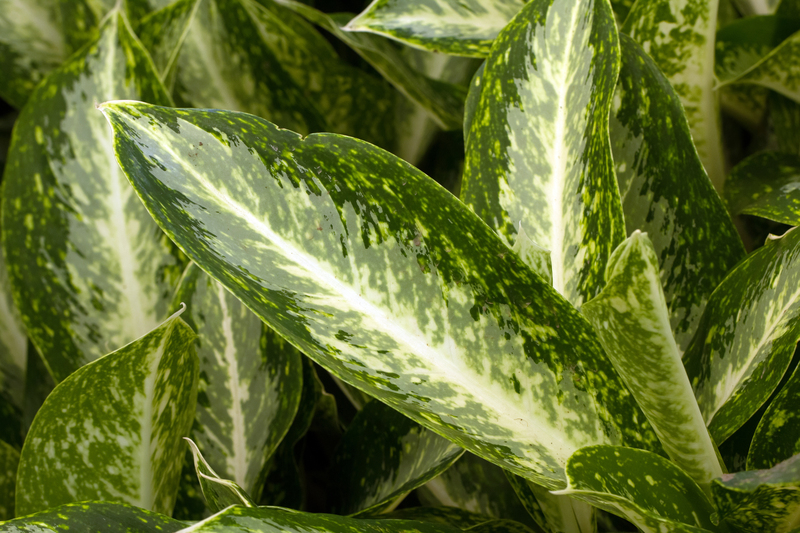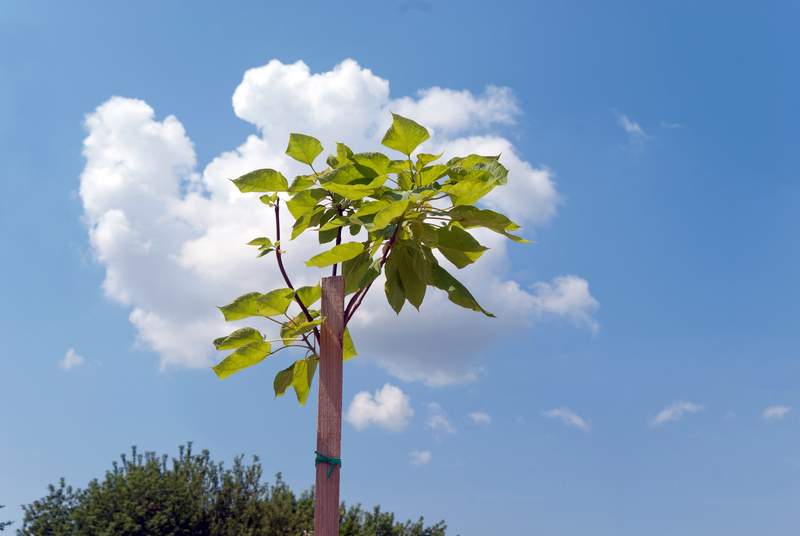Step into Gardening: Top 9 Tips Every Beginner Should Know
Posted on 01/06/2025
Step into Gardening: Top 9 Tips Every Beginner Should Know
Gardening is a wonderful hobby that connects you with nature, improves your well-being, and brings fresh beauty to your home. If you're eager to step into gardening but don't know where to start, you're in the right place. Whether you dream of vibrant flower beds or a thriving vegetable patch, these expert gardening tips will guide you from novice to green-thumb in no time.
Why Gardening is the Perfect Hobby for Beginners
Starting a garden offers numerous benefits beyond the satisfaction of growing your own food or flowers. Here's why gardening is ideal for beginners:
- Mental wellness: Gardening reduces stress and boosts your mood.
- Physical exercise: Planting, watering, and weeding are great for your body.
- Fresh produce: Imagine plucking homegrown tomatoes or herbs for dinner!
- Environmental impact: You'll help pollinators and enrich your local ecosystem.
Ready to step into gardening? Let's dig into the top 9 tips every beginner gardener should know.

Tip 1: Choose the Right Location
Selecting the optimal spot is the foundation for any successful garden. Here's what you need to know:
- Most plants need at least 6 hours of sunlight daily. Observe your yard throughout the day.
- Make sure the area has good drainage and is accessible for watering and maintenance.
- Avoid spots under large trees or near aggressive root systems, which can compete for nutrients.
Pro tip: If you have limited space or poor soil, container gardening is a fantastic option for beginners. Use pots or raised beds on patios or balconies to kick off your gardening journey!
Tip 2: Know Your Climate and Hardiness Zone
Gardening isn't one-size-fits-all. Plants that thrive in one region may not survive in another. Understanding your climate and USDA Hardiness Zone is crucial.
- Check your hardiness zone on the USDA Plant Hardiness Zone Map.
- Choose plants, flowers, and vegetables suited to your zone and weather patterns.
- Consider frost dates; some seeds must be started indoors or only planted after the last expected frost.
Tip: Visit a local nursery or talk to fellow gardeners in your area for trusted plant recommendations.
Tip 3: Start with Easy-to-Grow Plants
Not all plants are created equal! For beginners, it's wise to pick varieties that are easy to care for and forgiving of mistakes. Here are some beginner-friendly choices:
Top Plants for Beginner Gardeners
- Lettuce & spinach: Fast-growing, low-maintenance leafy greens.
- Beans: Simple to plant and productive throughout the season.
- Sunflowers: Hardy and visually stunning, perfect for children too.
- Zinnias & marigolds: Bloom easily and attract pollinators.
- Herbs (basil, parsley, mint): Quick to sprout and useful in the kitchen.
Remember: Success with these plants will boost your confidence as you become more skilled and experiment with other varieties!
Tip 4: Prepare the Soil Properly
Your plants are only as healthy as the soil they grow in. Fertile, well-structured soil is essential for successful gardening. Here's how to prepare it:
- Loosen the soil to a depth of 8-12 inches using a shovel or fork.
- Mix in organic matter like compost, aged manure, or peat moss.
- Remove rocks, weeds, and debris for easier planting and healthier roots.
- If your garden soil is poor, consider raised beds or store-bought potting mix for containers.
Tip: A simple soil pH test kit can help you determine if your soil needs any amendments. Most vegetables prefer a neutral pH (6.0-7.0).
Tip 5: Water Wisely
Proper watering is crucial for a thriving garden. Both overwatering and underwatering can harm your plants. Master the basics:
- Water in the morning to reduce evaporation and prevent disease.
- Soak the soil deeply rather than frequent light watering -- roots grow deeper and stronger.
- Plants in containers dry out faster and require more frequent checks.
- Mulch helps retain moisture and keeps roots cool (more on mulch below!).
Rule of thumb: Stick your finger into the soil up to the second knuckle. If it feels dry, it's time to water.
Tip 6: Mulch for Success
Mulching is one of the best-kept secrets of experienced gardeners. Here's how it benefits you:
- Suppresses weeds so your plants don't have to compete for nutrients.
- Reduces water evaporation, keeping soil moist longer.
- Moderates soil temperature on hot or cold days.
- Improves soil structure as organic mulches decompose.
Best Mulch Materials for Beginners
- Shredded bark or wood chips (great for flower beds)
- Straw or grass clippings (ideal for vegetables)
- Pine needles and compost (enrich soil as they break down)
Don't forget: Apply a 2-3 inch layer of mulch, but keep it a few inches away from plant stems to avoid rot.
Tip 7: Feed Your Plants with the Right Fertilizer
Even rich soil sometimes needs a nutrient boost. Here's what every beginner gardener should know:
- Use a balanced, slow-release fertilizer for most vegetables and flowers.
- Organic fertilizers like compost tea, fish emulsion, or worm castings are gentle and environmentally friendly.
- Follow package directions -- too much fertilizer can burn plants.
- Feed at the right time: typically when planting, and at key growth stages.
Observation is key: Yellow leaves or slow growth may signal a nutrient deficiency. Adjust your feeding schedule as needed.
Tip 8: Keep an Eye Out for Pests and Diseases
Every garden encounters pests and diseases at some point. The best defense? Regular monitoring and prompt action:
- Check leaves (top and bottom) weekly for holes, discoloration, or sticky residue.
- Encourage beneficial insects like ladybugs and lacewings to keep pest populations in check.
- Remove diseased plants quickly to prevent spread.
- Try organic solutions: neem oil, insecticidal soap, or hand-picking pests.
Remember: Not every bug is bad! Pollinators and predator insects are your garden's allies.
Tip 9: Learn, Experiment, and Enjoy the Journey
The most important advice for those who want to start gardening is to view each season as a learning opportunity. Gardening is a blend of science, art, and patience.
- Start small: Avoid overwhelming yourself with a huge garden the first year. Success in a couple of beds is more encouraging!
- Keep a journal: Record what you plant, when you plant it, and what works (or doesn't).
- Join local gardening groups: Online forums, Facebook groups, or local clubs offer support and advice tailored to your region.
- Celebrating even the smallest harvest will motivate you for next season.
Experimentation and resilience are essential -- don't be discouraged by failures. Every mistake is a step toward a lush, thriving garden.

Frequently Asked Questions About Starting a Garden
What tools do beginner gardeners need?
- Gloves, trowel, hand fork, watering can, pruners, and a spade are great starters.
How much time does it take to maintain a beginner garden?
- Just a few hours a week are enough to get started with gardening. As you gain confidence, you can grow your space and commitment.
Can I garden in a small space or apartment?
- Absolutely! Container gardening on balconies, windowsills, or patios produces beautiful results. Herbs, salad greens, and even tomatoes can thrive in pots.
Final Thoughts: Step Confidently Into Gardening!
Stepping into gardening is a gratifying and ongoing adventure. These top 9 beginner gardening tips form the backbone of successful gardens worldwide. Start small, have patience, and savor every stage of growth. As seasons pass, your skills and rewards will flourish.
Ready to step into the world of gardening and transform your outdoor space into a haven? Grab your gloves and spade - your green-thumb journey starts today!
For more gardening inspiration and advanced tips, bookmark this page and revisit as your garden grows.
Latest Posts
Canine Companions in the Garden: Making it Work
Revolutionize your garden to support a healthier planet
Garden Smart: Low Maintenance Strategies on a Budget

